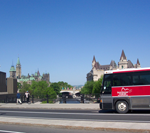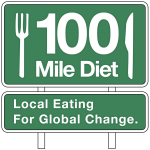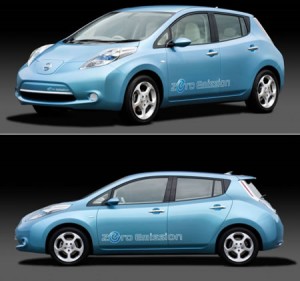Going Green
Most residents of Greely have one thing in common: they possess a keen desire to live in a beautiful, serene, and natural environment away from the hustle and bustle of the city. As residents of Greely, we want to, whenever possible, take the necessary steps to ensure the future of the environment we now enjoy for our children and our grandchildren. With this in mind, here are a few things that can be done to protect our cherished landscapes & the natural world around us.
Click on any of the links below to learn more about going green in Greely!
Reducing the energy consumption of your home
Tree Planting:
Trees alter the environment in which we live by moderating climate, improving air quality, conserving water, and harboring wildlife. In addition, trees absorb carbon dioxide (a potent greenhouse gas affecting the Earth’s climate), prevent soil erosion, decrease run-off, manipulate snow drifts, and insulate noise.
Tree planting can be a fun and rewarding experience for you and your family to enjoy over the years. Here is a list of local nurseries where trees can be purchased:
- Peter Knippel Nursery: 4590 Bank St., Gloucester, ON
- Manotick Gardens & Landscaping Supplies: 2709 River Rd., Manotick, ON
- Eco Landscaping Brookside Gardens: 336 River Rd., Gloucester, ON
- Ferguson Forest Centre: 275 County Rd., Kemptville, ON
- Pioneer Nursery Ltd.: 632 Van Buren, Kemptville, ON
More information on tree planting can be found here.
Shopping and Eating Locally:
Shopping & eating locally has many benefits environmentally, socially, and nutritionally. It’s better for the environment because the closer we are to shopping amenities, the less we have to drive, and the less gas we consume. The same logic can be applied to purchasing locally-grown produce. Most of the produce we buy in large-scale supermarkets is shipped across the country and this consumes large amounts of fossil fuels. Local eating has social benefits because it exposes us to a new, yet traditional relationship with food and to the people that produce it. Also, there are nutritional benefits because food shipped from afar is not as fresh and therefore may have a lower nutritional value than food produced locally.
Greely residents can purchase local food nearby at the following locations:
- Metcalfe at the Metcalfe Farmers’ Market: 8th Line Rd., Metcalfe, ON.
- Roots and Shoots Farm: 1558 Manotick Station Rd., Greely, ON
- Fair Weather Farm: 2871 River Rd., Osgoode, ON
- Greta’s Organic Gardens: 399 River Rd., Ottawa, ON
- Kellgreen Organic Farm: 2325 River Rd., Manotick, ON
- Ovens Farm: 4205 Nixon Dr., Osgoode, ON
- Suntech Greenhouses Ltd.: 5541 Doyle Rd., Manotick, ON
CHALLENGE YOURSELF! Try the 100-mile challenge hosted by The Food Network. Click here for meal plan options, a directory to local vendors, and local, in-season recipe sharing!
 Smart shopping can be extended to daily household cleaning products. Chemical cleaners are not only bad for the environment, but for us as well! Many stores carry biodegradable cleaning supplies. For day-to-day jobs, try using vinegar and water. It’s a cheap, non-toxic way to clean, launder, weed, and do all kinds of jobs around the house!
Smart shopping can be extended to daily household cleaning products. Chemical cleaners are not only bad for the environment, but for us as well! Many stores carry biodegradable cleaning supplies. For day-to-day jobs, try using vinegar and water. It’s a cheap, non-toxic way to clean, launder, weed, and do all kinds of jobs around the house!
Reducing the energy consumption of your home:
- Build your home with passive solar design in mind: Maximize your southern exposure with south-facing windows which can boost the passive solar heating in your house, reduce energy consumption and save on energy bills. A walkout basement allows more sunlight in and minimizes the amount of concrete needed for foundations – a double whammy for reducing greenhouse gas emissions!
- Greenovate your appliances: According to the EPA, appliances 10 years of age and older should be replaced with more energy efficient models (look for the Energy Star logo).
- Monitor the temperature of your home: Even turning down the thermostat a degree in the winter (or turning it up a degree in the summer) can save a surprising amount of energy. Other ideas which can help decrease your home’s consumption of heating and cooling energy include shading your east and west windows, using ceiling fans as opposed to air conditioners, and cleaning your furnace’s air filter regularly.
- Conserve water: Put an aerator on all faucets and adjust your float valve on your toilet so less water is admitted into the toilet’s tank.
- Use energy-efficient lighting: Compact Fluorescent Light Bulbs use less energy and last longer so they are a cost effective and environmentally-friendly option to use for household lighting.
CHALLENGE YOURSELF! Work a few simple changes into your daily routine. Turn off unused lights, unplug miscellaneous appliances and chargers when not in use, print double sided on recycled paper, use fans instead of air conditioners, wash in cold water, and hang your clothes to dry.
Waste Diversion:
We have all heard about the 3 R’s (Reduce, Reuse, Recycle), but the most important one is the first (REDUCE!). Reducing the amount of waste you generate can easily fit into your everyday life with little effort.
CHALLENGE YOURSELF! Use reusable grocery bags to cut back on the plastic at the grocery store, remove yourself from junk mail lists, use dish towels instead of paper towels, enroll in e-billing, purchase items with a low amount of packaging, try your hand at composting, use reusable coffee mugs and water bottles, and start drinking tap water.
If you haven’t already started composting with the City of Ottawa program, click here for more information.
Sustainable Gardening:
There are many ways to make your gardening more sustainable, such as:
- Buying Compost: If you don’t do your own composting at home, you can buy municipal compost from the City of Ottawa. For more information, please click here. Compost provides all of the benefits of synthetic fertilizers without the harsh chemicals and it helps divert waste from our landfills.
- Use Native Plants: These plants have adapted to the local environment and require less water and less attention than other plants.
- Use Organic Pest Control: Use diatomaceous dirt to kill insects, pour boiling water on weeds, use beer to bait slugs, and pull weeds by hand.
- Stormwater Management: Direct your eavestroughs to specific areas to enhance stormwater management. Better yet, incorporate rain gardens into your landscaping, by planting gardens with with permeable soil in shallow depressions or low-lying areas in stormwater drainage paths. This way, stormwater can be directed right to the plants and flowers that need it – just as nature intended.
Alternative Energy Sources
While reducing energy consumption is very important in moving towards a greener lifestyle, it is also important to consider alternatives to the energy derived from the burning of fossil fuels. Alternative energy sources come from wind, solar, hydro, and geothermal energy facilities – all of which decrease our reliance on fossil fuels and, consequently, our contribution to climate change. While it may seem daunting to think about building a wind turbine on a residential property or setting up solar panels on a rooftop, there are ways in which you can obtain renewable alternative energy:
Bullfrog Power:

Bullfrog Power is attempting to offer all energy users in British Columbia, Alberta, Ontario, Nova Scotia, New Brunswick, and Prince Edward Island an alternative to polluting energy sources such as nuclear, coal, oil, and natural gas. Essentially what Bullfrog does is match your electricity use with renewable energy which is injected back into your local electricity grid. You can visit their website at www.bullfrogpower.com for more information.
The Ontario Micro Feed-In Tariff (MicroFIT) Program:

This program gives aid to people building small-scale renewable electricity generation projects. Homeowners can be paid a guaranteed price for all the electricity the project produces for at least 20 years. The most common MicroFIT projects are Solar Photovoltaic Panels and the program provides an incentive for homeowners to consider alternate forms of energy production. Click here for more information.
Transportation
Electric Cars: Electric cars are propelled by electric motors using electrical energy stored in batteries, which can be recharged at charging stations. Electric cars are beneficial in that they reduce urban air pollution, do not emit harmful pollutants, reduce greenhouse gas emissions, and will help you save money on gas! Examples include the Tesla Roadster, the Nissan Leaf and the Chevy Volt.
Hybrid Cars: This is a vehicle that uses two or more distinct power sources to move the vehicle. These cars mainly consist of an internal combustion engine and one or more electric motors. Hybrid cars consume far less petroleum and consequently emit less greenhouse gases than non-hybrid cars. Some examples include the Toyata Prius, the Honda Civic Hybrid, the Honda Insight, the Ford Fusion Hybrid, the Mercury Milan Hybrid, the Nissan Altima Hybrid, the Toyota Camry Hybrid, etc.
Public Transportation:
 Although public transportation is limited in rural Greely, residents who work in the City can cut back on gas and parking expenditures and decrease their carbon footprint by utilizing many of the park and ride locations throughout Ottawa. The two closest park and ride locations to Greely can be found on Earl Armstrong Road in Riverside South and at Greenboro station near the South Keys Shopping Centre off of Bank Street. There are two other public transportation alternatives for residents of Greely aside from OC Transpo. These are as follows:
Although public transportation is limited in rural Greely, residents who work in the City can cut back on gas and parking expenditures and decrease their carbon footprint by utilizing many of the park and ride locations throughout Ottawa. The two closest park and ride locations to Greely can be found on Earl Armstrong Road in Riverside South and at Greenboro station near the South Keys Shopping Centre off of Bank Street. There are two other public transportation alternatives for residents of Greely aside from OC Transpo. These are as follows:
Other Options:
 Consider how to cut back on unnecessary travelling by considering some of these items:
Consider how to cut back on unnecessary travelling by considering some of these items:
- On days where it is possible, consider working from home. There are programs that make it possible to network your home computer to your work computer for full access to all of your work!
- Conduct a quick cost analysis of whether it would be cheaper or more efficient to shop at the Foodland nearby vs. travelling to a grocery store further away. Save on time and miles!
- Conduct Skype meetings and conference calls as opposed to travelling by car, train or airplane for business meetings.




